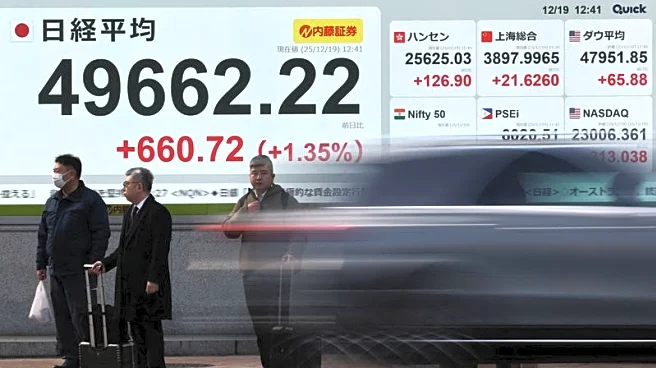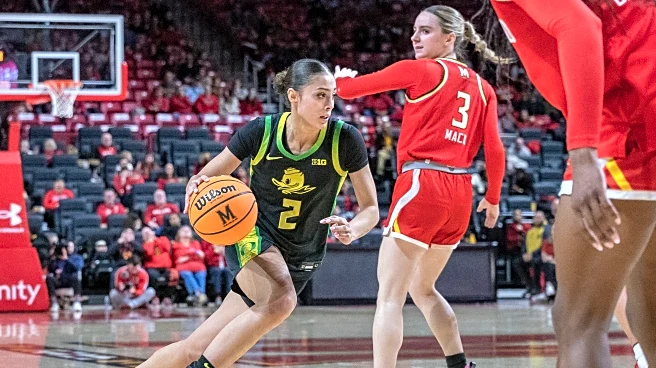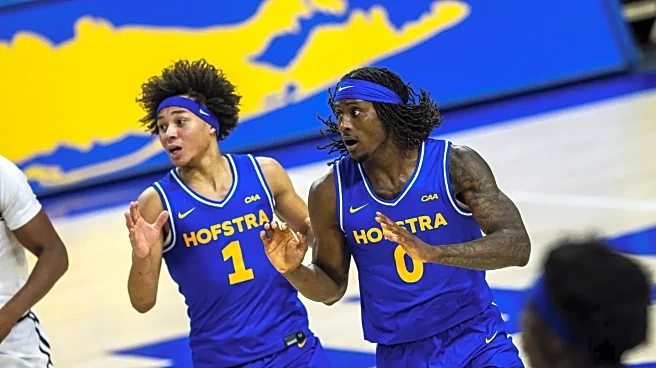What's Happening?
The Women's National Basketball Players Association (WNBPA) has opted out of the current collective bargaining agreement (CBA) with the WNBA, which was originally set to expire in 2027. This decision, announced on October 21, 2024, comes as the league
approaches the expiration of the current CBA on October 31, 2025. The move has heightened tensions between the players and the league, with WNBPA Vice President Napheesa Collier publicly criticizing WNBA Commissioner Cathy Engelbert's leadership. The league is on the brink of a lockout, which could disrupt its recent growth, including a significant 11-year, $2.2 billion media-rights deal. The upcoming free agency period is expected to be unprecedented, with nearly all players off rookie-scale contracts eligible for free agency, potentially reshaping the league's landscape.
Why It's Important?
The decision to opt out of the CBA is significant as it highlights the players' demand for better compensation and benefits, reflecting the league's growth in viewership and revenue. The potential lockout could impact the league's momentum and financial stability, affecting stakeholders such as players, team owners, and sponsors. The situation underscores the players' leverage in negotiations, given the league's recent media deal and the anticipated increase in player salaries. The outcome of these negotiations could set a precedent for future labor relations in women's professional sports, influencing how leagues balance player compensation with financial sustainability.
What's Next?
As the WNBPA and the league prepare for negotiations, the focus will be on reaching a new agreement that addresses the players' demands for increased salaries and improved working conditions. The potential for a lockout looms if an agreement is not reached by the CBA's expiration. The upcoming free agency period, coupled with the expansion of the league to include new teams in Portland and Toronto, presents an opportunity for significant changes in team rosters and league dynamics. Stakeholders will be closely watching the negotiations, as the outcome will have long-term implications for the league's growth and the players' careers.
Beyond the Headlines
The WNBA's current situation reflects broader issues in professional sports regarding gender equity and fair compensation. The players' push for better pay and conditions highlights ongoing disparities between men's and women's sports leagues. The outcome of these negotiations could influence public perception and support for women's sports, potentially driving further investment and interest. Additionally, the league's handling of this situation may impact its reputation and ability to attract top talent in the future.















